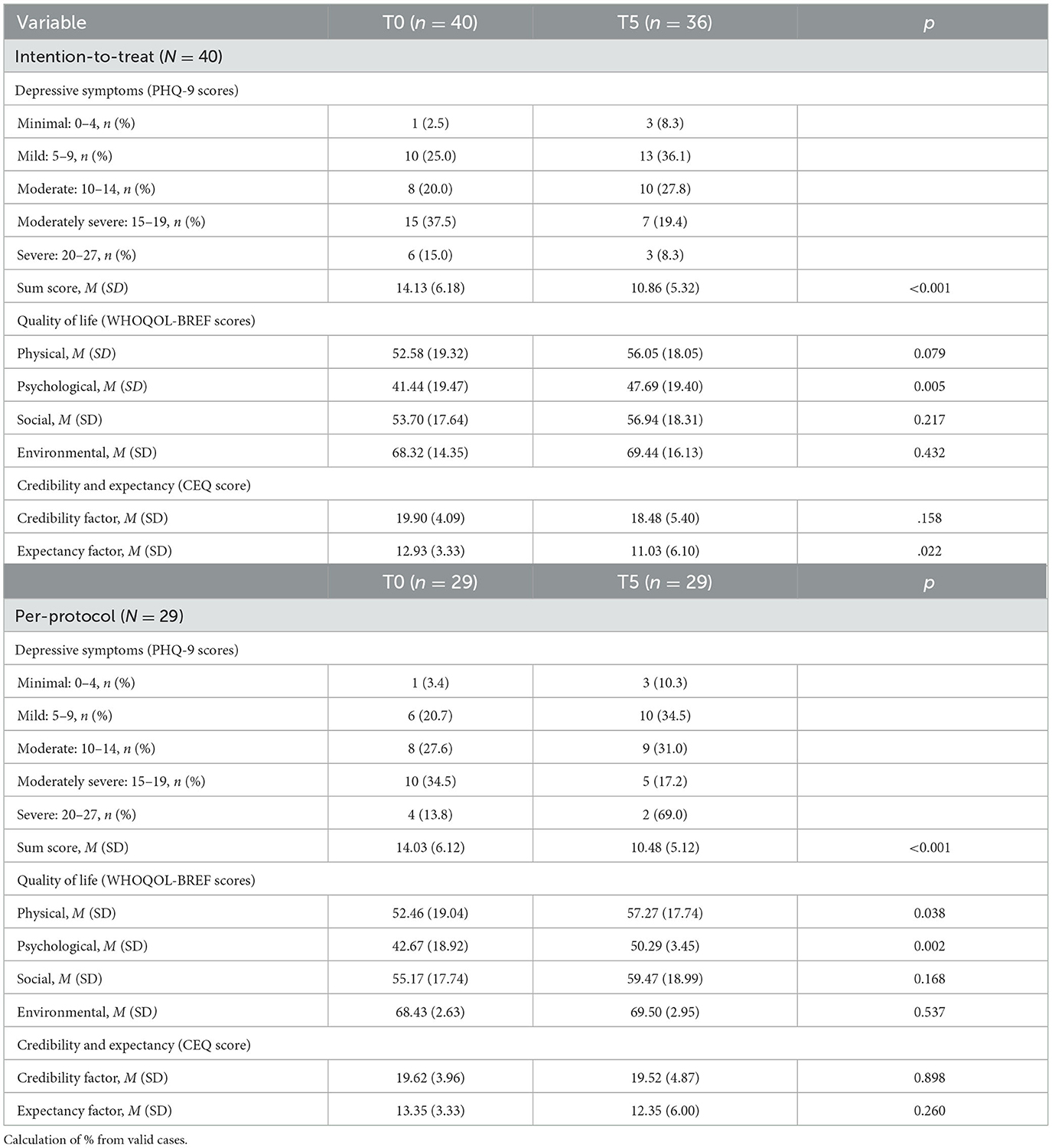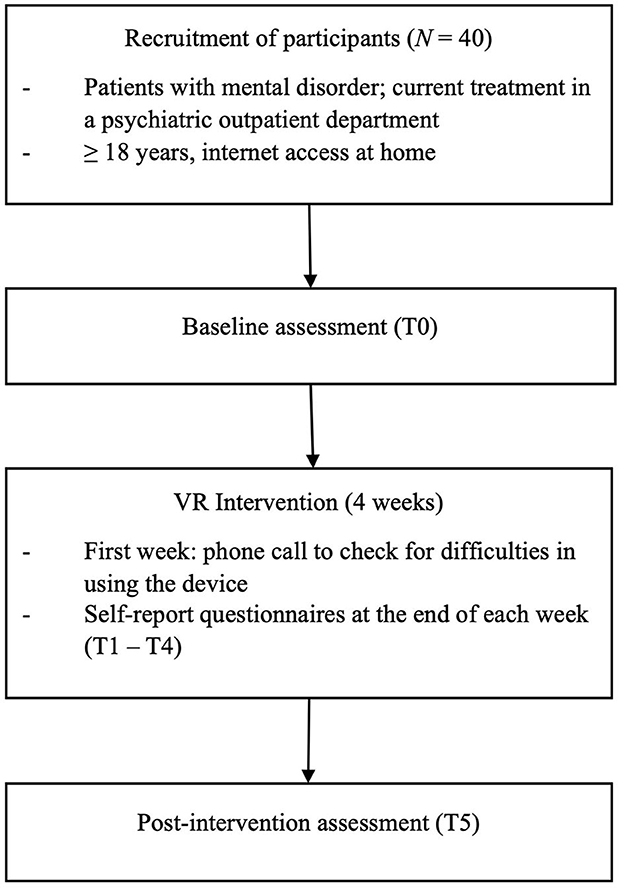Acceptability, feasibility, and user satisfaction of a virtual reality relaxation intervention in a psychiatric outpatient setting during the COVID-19 pandemic
- 1Department of Psychiatry and Psychotherapy, Medical Faculty, Leipzig University, Leipzig, Germany
- 2Department of Psychiatry and Psychotherapy, Leipzig University Medical Center, Leipzig, Germany
- 3Lab E GmbH, Esslingen, Germany
by Humbert, A., Kohls, E., Baldofski, S., Epple, C., and Rummel-Kluge, C. (2023). Front. Psychiatry. 14:1271702. doi: 10.3389/fpsyt.2023.1271702
In the published article, there was an error in Table 3 as published. Under the Intention-to-treat section there are missing the four scores of quality of life (WHOQOL-BREF scores) at T0. The corrected Table 3 and its caption appear below.
In the published article, there was an error in the text. There were two sentences in the article in which numbers were falsely formatted as references.
First, a correction has been made to the section 2. Materials and methods, 2.5. Measures, 2.5.5. Depressive symptoms. This sentence previously stated:
“In addition, sum scores were classified to represent different levels of severity of depressive symptoms from minimal (0–4), mild (5–9), moderate (10–14), moderately severe (15–19) to severe (20–27, 47).”
The corrected sentence appears below:
“In addition, sum scores were classified to represent different levels of severity of depressive symptoms from minimal, 0 to 4, mild, 5 to 9, moderate, 10 to 14, moderately severe, 15 to 19, to severe, 20 to 27 (47).”
Second, a correction has been made to the section 3. Results, 3.5. Depressive symptoms and quality of life, paragraph 3. This sentence previously stated:
“However, social quality of life, z = 1.38, p = 0.168, r = 0.26 (small effect), and environmental quality of life, t (28) = −0.63, p = 0.537, dz = 0.12 (small effect), did not differ significantly between T0 and T5 in the PP analysis (see Table 3).”
The corrected sentence appears below:
“However, social quality of life, z = 1.38, p = 0.168, r = 0.26 (small effect), and environmental quality of life, t(28) = −0.63, p = 0.537, dz = 0.12 (small effect), did not differ significantly between T0 and T5 in the PP analysis (see Table 3).”
In the published article, there was an error in Figure 1 as published. The word “Recriutment” was corrected to “Recruitment”. The corrected Figure 1 and its caption appear below.
The authors apologize for these errors and state that this does not change the scientific conclusions of the article in any way. The original article has been updated.
Publisher's note
All claims expressed in this article are solely those of the authors and do not necessarily represent those of their affiliated organizations, or those of the publisher, the editors and the reviewers. Any product that may be evaluated in this article, or claim that may be made by its manufacturer, is not guaranteed or endorsed by the publisher.
Keywords: virtual reality, relaxation, feasibility, psychiatric outpatients, mental
Citation: Humbert A, Kohls E, Baldofski S, Epple C and Rummel-Kluge C (2024) Corrigendum: Acceptability, feasibility, and user satisfaction of a virtual reality relaxation intervention in a psychiatric outpatient setting during the COVID-19 pandemic. Front. Psychiatry 14:1358379. doi: 10.3389/fpsyt.2023.1358379
Received: 19 December 2023; Accepted: 21 December 2023;
Published: 04 January 2024.
Edited and reviewed by: Heleen Riper, VU Amsterdam, Netherlands
Copyright © 2024 Humbert, Kohls, Baldofski, Epple and Rummel-Kluge. This is an open-access article distributed under the terms of the Creative Commons Attribution License (CC BY). The use, distribution or reproduction in other forums is permitted, provided the original author(s) and the copyright owner(s) are credited and that the original publication in this journal is cited, in accordance with accepted academic practice. No use, distribution or reproduction is permitted which does not comply with these terms.
*Correspondence: Annika Humbert, AG-E-Mentalhealth@medizin.uni-leipzig.de
 Annika Humbert
Annika Humbert Elisabeth Kohls
Elisabeth Kohls Sabrina Baldofski
Sabrina Baldofski Carola Epple
Carola Epple Christine Rummel-Kluge
Christine Rummel-Kluge
